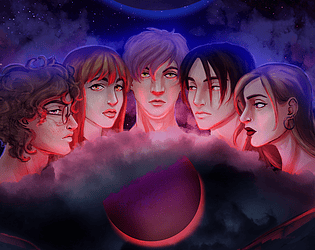| Developer(s) | Bradford W. Mott, Stephen Anthony Stella Team |
|---|---|
| Initial release | 1996; 25 years ago[1] |
| Stable release | 6.5.3 / 20 April 2021; 11 days ago |
| Repository | github.com/stella-emu/stella |
| Written in | C++17 |
| Operating system | Current: Linux, MacOS, Windows No longer supported: AmigaOS, Dreamcast, GP2X, Nintendo DS, Wii, Windows CE/Mobile |
| Type | Console emulator |
| License | GNU GPLv2, open-source |
| Website | stella-emu.github.io |
Stella is an emulator of the Atari 2600 game console, and takes its name from the console's codename.[2] It is open-source, and runs on most major modern platforms including Windows, Mac OS X, and Linux. Stella was originally written in 1996 (and known as Stella 96[1]) by Bradford W. Mott, and is now maintained by Stephen Anthony.
Stellarium is a complete virtual planetarium with more than 120k stars, planets and constellations; plus a fully customizable navsystem to select any place you want to look at the sky from. Stella is an emulator of the Atari 2600 game console, and takes its name from the console's codename. It is open-source, and runs on most major modern platforms including Windows, Mac OS X, and Linux.Stella was originally written in 1996 (and known as Stella 96) by Bradford W. Mott, and is now maintained by Stephen Anthony. Stella is written in the C programming language and thus is highly. An Archive of Our Own, a project of the Organization for Transformative Works. Stellamore is an upcoming visual novel for iOS and Android, heavily inspired by mythologies around the world, with a dash of science and fantasy elements. The player will step into the shoes of one of the few approved Human ambassadors (whose name and pronouns can be set by the player), tasked with negotiating peace during a tense political summit.
Stella is written in the C++ programming language and thus is highly portable.[3] The emulator supports all Atari 2600 cartridge bank switching schemes and has support for nearly all Atari 2600 titles. Support is included for NTSC, PAL and SECAM in 60 Hz/50 Hz varieties, including autodetection of those formats (based on the number of scanlines generated in each frame). It has cycle-exact emulation for the TIA chip (graphics and sound); the Stella Team estimates that current TIA emulation is nearing 100% completion.
Stella emulates most Atari 2600 peripheral devices, including standard joysticks, paddle controllers, the Atari Video Touch Pad, the Atari Keyboard Controller, Atari Indy 500 Driving Controllers, the CBS Booster-Grip controller, the Atari TrakBall/AtariMouse/AmigaMouse trackball controllers, the Sega Genesis controller, and the AtariVox and SaveKey controllers. Stelladaptor and 2600-daptor support allows real joysticks, paddles, and driving controllers to be used, and support is also included to access a real AtariVox device plugged into a serial port (and actually generate sound from the AtariVox device). Stella does not yet support the cassette-based titles designed to work with the Coleco KidVid cassette player but does have support for titles designed to work with the Starpath Supercharger and Spectravideo Compumate.[4]
Stella includes many facilities for homebrew developers, including an extensive built-in interactive debugger and disassembler supporting breakpoints, read/write traps, etc. Other major features include Blargg TV effects, a cheatcode system, support for user-defined palette files, state loading/saving (including a TimeMachine-like unwind/rewind capability), hardware-accelerated rendering and effects, event remapping, and an extensive built-in, cross-platform user interface (including a ROM launcher frontend).

Stella uses the TIA emulation core from 6502.ts, a collection of emulators for MOS 6502 based systems written in TypeScript and runnable from a web page.
Mac Os Catalina
References[edit]
- ^ abBradford Wayne Mott (1996-05-16). 'Stella 96 - An Atari 2600 Emulator'. Newsgroup: rec.games.video.classic. Retrieved 2007-08-04.CS1 maint: discouraged parameter (link)
- ^Kohler, Chris (2006). Retro Gaming Hacks. Sebastopol: O'Reilly. p. 143. ISBN0-596-00917-8.CS1 maint: discouraged parameter (link)
- ^'Stella - A multi-platform Atari 2600 VCS emulator'. Retrieved 2012-06-01.CS1 maint: discouraged parameter (link)
- ^'Stella - A multi-platform Atari 2600 VCS emulator (User's Guide - Release 4.7.3)'. Retrieved 2016-12-31.CS1 maint: discouraged parameter (link)
Further reading[edit]
- Kohler, Chris (October 2005). 'Emulate the Atari 2600'. In Jepson, Brian (ed.). Retro Gaming Hacks: Tips & Tools for Playing the Classics. O'Reilly Media. p. 144. ISBN978-0596009175. LCCN2006274175.
- Montfort, Nick; Bogost, Ian (2009-03-31). 'After the Crash'. Racing the Beam: The Atari Video Computer System. Platform Studies. Cambridge, MA: The MIT Press (published March 2009). pp. 140–141. ISBN978-0262012577. LCCN2008029410.
Stellamore Mac Os Download
External links[edit]
Project and ports[edit]
Other[edit]
- Homepage of Bradford W. Mott – creator and programmer of the Stella Atari 2600 VCS emulator program
- Homepage of Stephen Anthony – current maintainer and lead developer of the Stella Atari 2600 VCS emulator program
- 2600-daptor device – allows using real Atari controllers via USB
Stella More Mac Os X
Retrieved from 'https://en.wikipedia.org/w/index.php?title=Stella_(emulator)&oldid=1018989809'